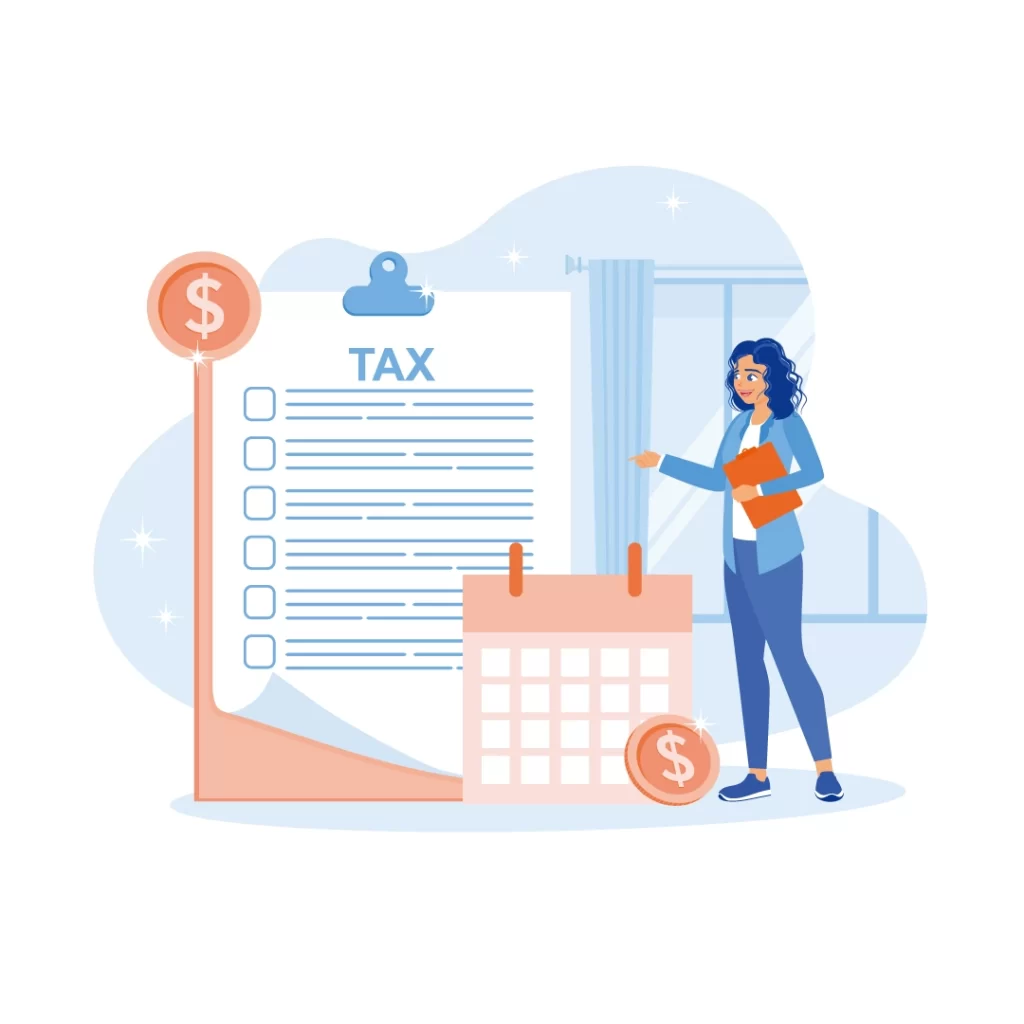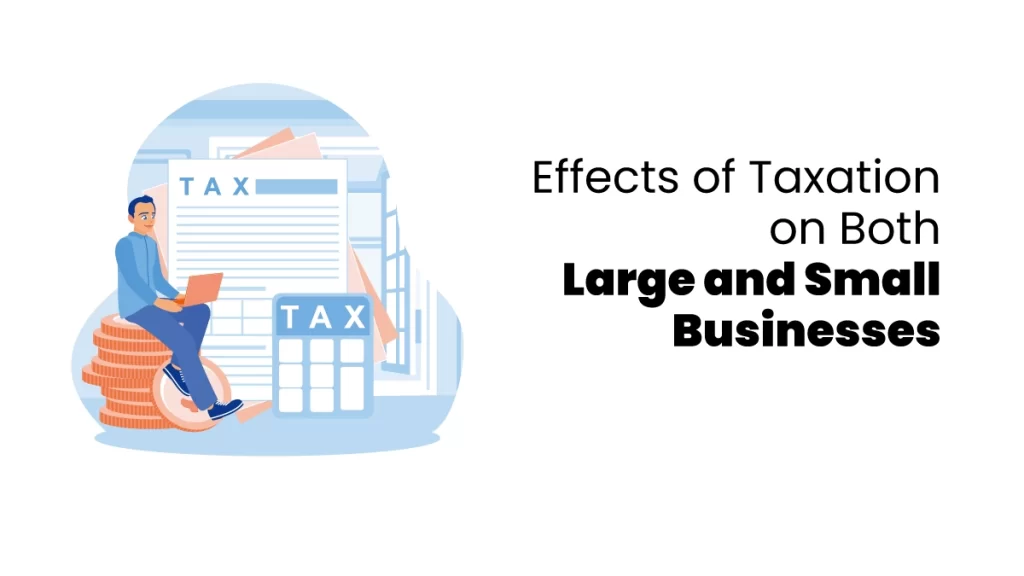The government has recently rolled out policies to make India a better place for global investment. Let’s read about the recent effects of taxation on businesses and how it helps businesses start and run smoothly in India.
Effects of Taxation
Businesses usually follow certain patterns for production, administration, and investment. However, when the government changes tax policies, it can disrupt those patterns. This disruption is what we call the effect of taxation. Here are some business taxation effects to consider:
Reduction in Disposable Income
Disposable income is the money taxpayers have left for personal use after taxes. When taxes go up, people have less disposable income, which means they can’t spend as much. This change can shift their buying habits and limit their ability to invest.
For example, suppose a small business owner faces heavy taxes. In that case, it can hurt their startup and impact the economy as a whole. However, some policies offer benefits and exemptions to startups, helping them grow despite the tax burden. To understand these recent changes, joining a business accounting and taxation course will help me acquire more knowledge regarding taxes.

Taxes Affect Production
The effects of taxation on businesses play a big role in a company’s decision to make a certain amount. By changing tax rates, the government can boost or lower production levels.
For example, with indirect taxes, there’s no GST on fresh juices, but carbonated drinks have a 28% GST plus a 12% extra tax. This clearly shows that the government wants to reduce the production of carbonated beverages by taxing them more.
Helps Keep Prices Stable
Taxes help the government manage product prices and guard against inflation. For example, GST on ready-made garments has two tax rates based on the price. If a garment costs less than Rs. 1,000, it gets a 5% tax. If it costs more than Rs. 1,000, the tax goes up to 12%.
Promotes Balanced Growth Across Regions
The effects of taxation on businesses should promote growth among all people. Taxation helps collect money from rich people and also gives it to those who need it.
Tax Laws for Small and Large Businesses
Tax laws are important for small and large businesses. They need to know and follow these laws to work legally and smoothly. Here’s a simple look at tax laws for both types of businesses:
| Tax Effect | Small Businesses | Large Businesses |
| Income Tax | Companies, such as sole traders or partners of partnerships, are liable to tax at personal taxation rates. This is because they declare their business revenues on their personal income tax returns and thus pay tax out of the total income earned. | Large businesses, usually corporations, are separate from their owners and pay corporate income tax rates. Their profits are taxed at corporate rates, and when they pay dividends to shareholders, those dividends are taxed as personal income. |
| Payroll Taxes | Small businesses with employees must deduct payroll taxes, such as income taxes and Social Security and Medicare taxes, from their workers’ paychecks and send this money to the government. | Large businesses have similar payroll tax duties but may also provide benefits like retirement plans and health insurance, which come with their own tax rules. |
| Sales Taxes | Small businesses that sell goods or services often collect sales or use taxes from customers. Tax rates change by state and city.They must follow local rules for collecting, reporting, and paying these taxes. | Large businesses that operate in many states deal with complicated sales tax laws. They usually have tax teams or hire experts to help them comply. |
| Property Taxes | Small businesses that own or rent property may pay property taxes. Local governments decide these taxes based on property value. | Large businesses with lots of properties can face high property tax bills. They might get tax breaks or exemptions from local governments to help them grow. |
| International Taxation | Small businesses that trade internationally may have to pay customs duties and tariffs. They should understand tax treaties between their home country and other countries. | Large businesses working globally face complex tax issues like pricing between branches and foreign tax credits. They usually have teams or advisors to help with these tax challenges. |
| Tax Compliance and Reporting | Small businesses always manage proper financial records. They typically handle their own tax returns unless they get professional help. | Large businesses have more complicated tax rules and may need to report more, like making quarterly payments and sharing financial statements. They often hire tax experts to ensure everything is correct and to save on taxes. |
| Tax Planning and Optimization | Small businesses may use tax planning to reduce their tax bills. This includes selecting the right business type, deducting expenses, and using tax credits. | Large businesses will have more options for tax planning, like structuring deals and using tax-friendly investments. They can hire some members to follow the proper tax strategies. |
Some people may think taxes are a burden and try to find new ways to avoid paying taxes properly. However, the effects of taxation on businesses benefit everyone. It’s important to remember that taxes are money for the government. Don’t forget that taxes belong to the government.
The government helps make things fair for everyone and provides basic services and infrastructure that everyone can use. To get clear ideas about recent tax changes, taking accounting tax courses will help you and allow you to get all the tax information up to date in the industry.










